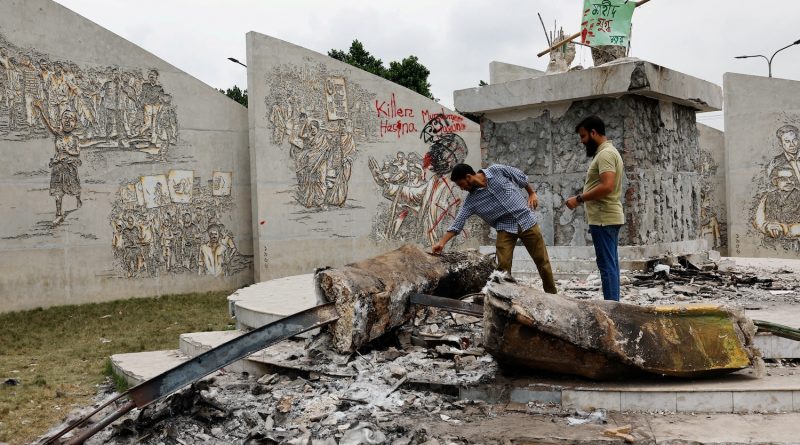Bangladesh awaits interim government after PM’s ouster
Students who led protests favour Nobel Peace laureate Muhammad Yunus as new leader

DHAKA – The president of Bangladesh dissolved parliament on Tuesday, paving the way for the formation of an interim government, a day after Prime Minister Sheikh Hasina resigned and fled the country following a violent crackdown on a student-led uprising.
A statement from President Mohammed Shahabuddin’s office also said that Hasina’s arch rival, Bangladesh Nationalist Party (BNP) chairperson Begum Khaleda Zia, a former prime minister, had been freed from house arrest.
Student protesters had threatened more demonstrations if parliament was not dissolved. The decision was taken following meetings with the heads of defence forces, leaders of political parties, student leaders and some civil society representatives, the presidential statement said.
Hasina’s flight on Monday ended her 15-year second stint in power. She had ruled the country for 20 of the last 30 years, having inherited the political movement of her father, state founder Mujubur Rahman, who was assassinated in 1975.
General Waker-Uz-Zaman, the army chief, was due to meet student leaders to discuss the formation of an interim government that is expected to hold elections soon after it takes over.
What happens next after Hasina, who turned Bangladesh into an economic success and ruled with an iron fist, remains unclear. It is possible the interim government will exclude her Awami League party, which won almost 80% of the parliamentary seats in a boycotted vote in January.
While Shahabuddin has vowed to hold elections “as soon as possible”, it’s unclear if Hasina’s allies will be able to participate or return to power.
Some normalcy returned to the capital Dhaka, although traffic was lighter than usual and few schools reopened with thin attendance after closing down in mid-July as protests against quotas in government jobs morphed into a broad campaign against Hasina’s rule.
About 300 people were killed and thousands injured in the violence that ripped through the country.
Police threaten to strike
But more trouble loomed as the Bangladesh Police Association on Tuesday said its members were going on strike, a day after the protests they had sought to crush with deadly force toppled the prime minister.
“Until the security of every member of the police is secured, we are declaring a strike,” the association, which represents thousands of police officers, said in a statement, which also offered an apology for police actions against the protesters.
Student leaders, who spearheaded the movement for Hasina to resign, said they want Nobel Peace laureate Muhammad Yunus as the chief adviser to the interim government and a spokesperson for Yunus said he has agreed to their demand.
Yunus, 84, and his Grameen Bank won the 2006 Nobel Peace prize for work to lift millions out of poverty by granting tiny loans of under $100 to the rural poor of Bangladesh, but he was indicted by a court in June on charges of embezzlement that he denied.
Yunus is currently in Paris for a “minor medical procedure” but was planning to return to Bangladesh “immediately” afterward, a spokesperson said.
Hasina, 76, landed at a military airfield, Hindon, near Delhi on Monday after leaving Dhaka, two Indian government officials told Reuters, adding that India’s National Security Adviser Ajit Doval met her there. They did not elaborate on her stay or plans.
It was earlier reported that her ultimate destination was the United Kingdom but this has not been confirmed.
Source – Bangkok News




